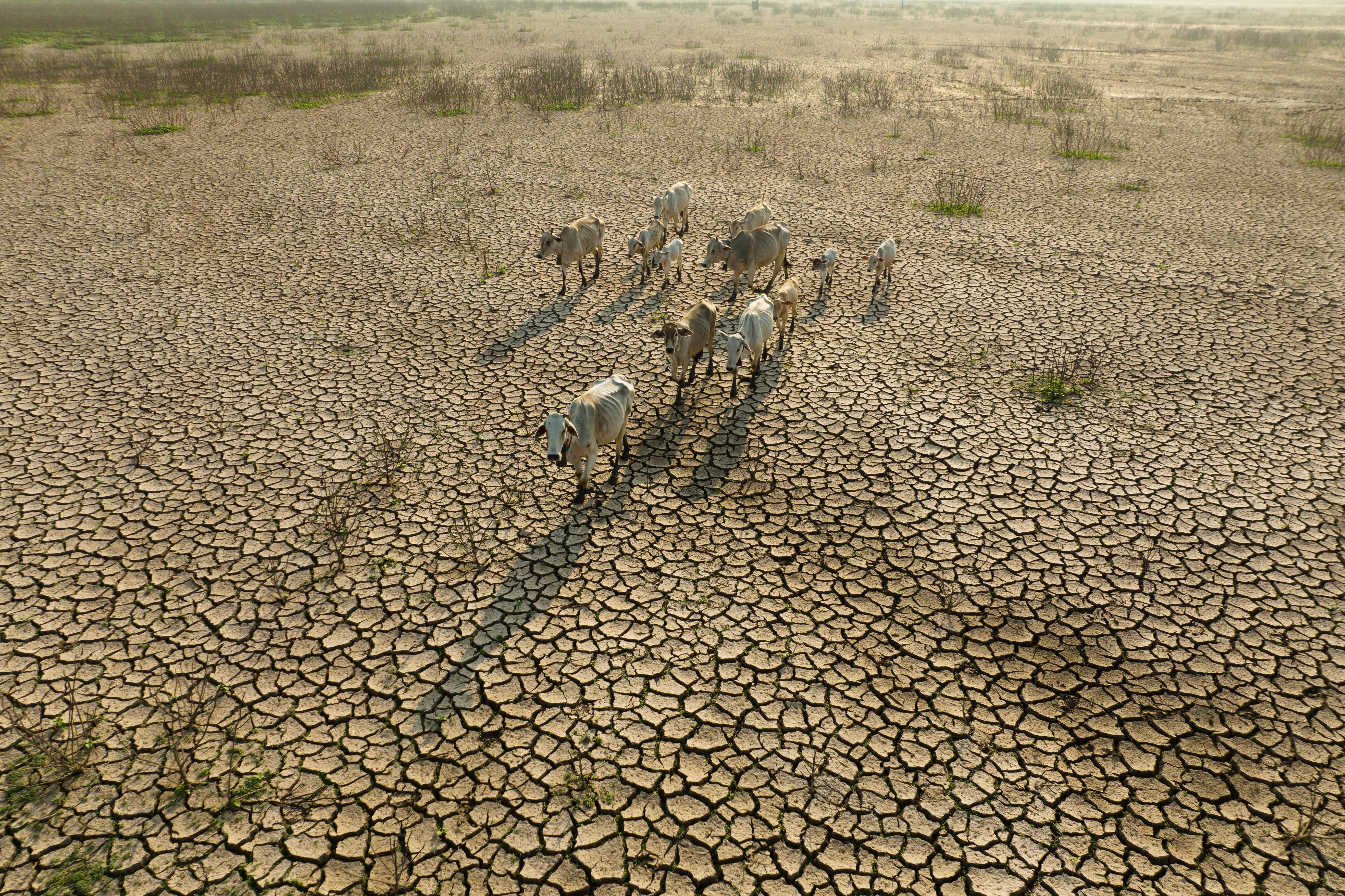COP28
Unveiling Africa's Imperative: Priorities and Urgencies at COP28 for Climate Justice

Livestock and climate change, thin cows walking on dry cracked earth looking for fresh water due lack of rain, an impact of drought and world climate change.
© ShutterstockAs the 2023 United Nations Climate Conference – better known as COP28 – kicks off this week in Dubai, African negotiators are arriving with a particular sense of moral and practical urgency. Since the last such conference, the region has been battered by an unprecedented series of natural disasters driven by climate change – from historic levels of drought in the Horn of Africa to storms of record strength in southern Africa and Libya. Seven out of ten of the countries worst affected by climate change in the world today are in Africa – despite the fact that the region contributes just 4 percent of global emissions. This radical imbalance sets the stage for Africa’s priorities at COP28, which largely revolve around building global support – and crucially, financing – for the region to adapt to climate change. Two particular and interlocking issues will likely be the focus.
The first is the question of how to make sure the necessary global economic transition from fossil fuels to greener alternatives is “just” – that is, to ensure it includes everyone. The second question is how this will all be funded, and who bears responsibility for ensuring that the world’s poorest people are not left behind. Today, there is near-global agreement that the only way to reduce carbon emissions enough to stop further planetary warming is for the world to radically scale back on the use of fossil fuels. Africa arrives at this conversation from a complex position. On the one hand, African countries recognise the importance of renewable energies, and many have set up ambitious plans to scale up these technologies, such as Mozambique’s recent commitment to invest $80 billion in renewable energy capacity by 2050.
On the other, the continent has substantial reserves of coal, petroleum, and natural gas, and countries argue that they should be allowed to use these resources to expand energy access and leverage their way out of poverty – just as the world’s wealthiest countries did in the past. This is especially urgent, they say, because half of Africa’s population, some 600 million, still lacks access to electricity. “The argument you’re going to hear from African negotiators is that there has to be space for a transitional role for fossil fuels in Africa’s path to net-zero,” says Gyude Moore, the former Liberian Minister of Public Works and a senior policy fellow at the Center for Global Development (CGD). What they do not all agree on is exactly how long this runway should be. “The question here is timing and sequence,” he says.
The speed at which Africa is able to transition away from fossil fuels will also be determined by the strength of the financial support it receives from the global community. To date, money earmarked for climate change mitigation and adaptation has arrived on the continent at rates far lower than needed to effectively address the problem. The United Nations estimates that “responding to climate vulnerabilities costs African countries 3–5 percent of gross domestic product (GDP) annually and, in some cases, more than 15 percent,” but notes that only 20 percent of the world’s “climate adaptation finance” is directed to the continent. Many African activists and governments argue that developed countries need to make commitments at COP28 that massively step up these contributions if the continent is to effectively adapt to rising temperatures in the coming years.
At the conference, attention will fall in particular on one financial instrument – the Loss and Damage Fund for Vulnerable Countries. The idea for this fund, which was agreed to at last year’s COP, is to earmark money specifically to compensate low-emitting countries for losses and damages they have suffered to their lives, cultures, environment, and infrastructure as a result of climate change. The 2022 agreement was historic because rich countries had been blocking the development of such a fund for three decades. But a year after its establishment, many specifics of the fund are still under negotiation, causing concern for the countries meant to be on the receiving end – including those in Africa.
Despite many ongoing uncertainties, however, there have been heartening developments already during COP28, says Alex Benkenstein, the head of the Climate and Natural Resources Programme at the South African Institute of International Affairs. “In the first days of COP28, we have seen substantial commitments announced by developed countries and regions towards the fund,” he says. “This includes $245 million from the EU, $100 million from the United Arab Emirates, $51 million from the United Kingdom, and relatively small contributions of $17.5 million and $10 million from the United States and Japan, respectively.”
